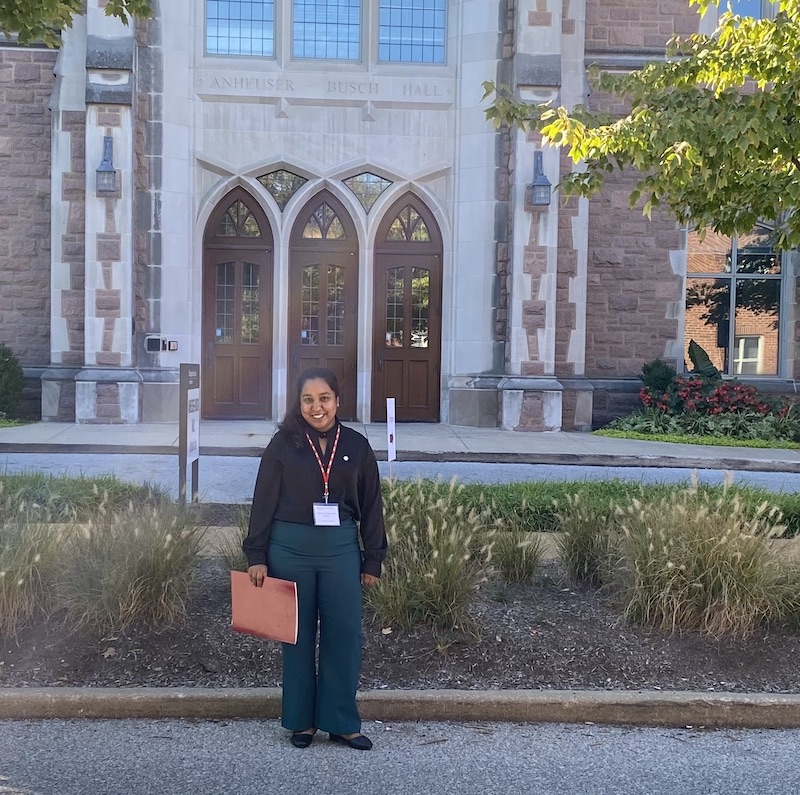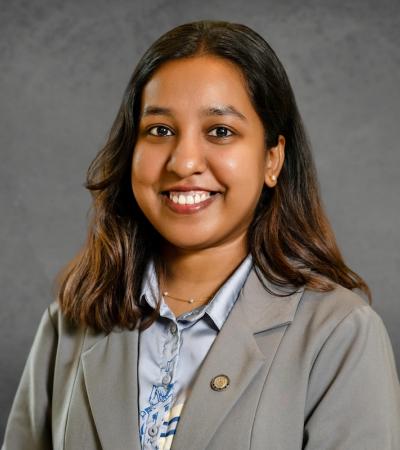JSD Symposium: The Next Generation of Scholarship; Washington University in St. Louis, Missouri
Kellogg Institute Conference Travel Grants
Conference: JSD Symposium: The Next Generation of Scholarship; Washington University in St. Louis, Missouri
October 7, 2023
Presentation: “Why Hurt Me Again? - Unraveling the Adverse Impact of Social Stigmatization on Survivors of Sexual Crimes”
REPORT:
 I presented my paper titled "Why Hurt Me Again? Unraveling the Adverse Impact of Social Stigmatization on Survivors of Sexual Crimes" at the symposium, which was moderated by Ms. Zhan Qiu, a JSD student from Washington University School of Law. My presentation slot allowed me 20 minutes for the main presentation and an additional 10 minutes for questions and answers. Given the limited time, I structured my presentation into three distinct parts.
I presented my paper titled "Why Hurt Me Again? Unraveling the Adverse Impact of Social Stigmatization on Survivors of Sexual Crimes" at the symposium, which was moderated by Ms. Zhan Qiu, a JSD student from Washington University School of Law. My presentation slot allowed me 20 minutes for the main presentation and an additional 10 minutes for questions and answers. Given the limited time, I structured my presentation into three distinct parts.
In the first part, I aimed to underscore the pertinence of my study by addressing three key questions: (i) What is social stigmatization? (ii) Why focus on survivors of sexual offenses? and (iii) Why refer to them as survivors rather than victims? I allocated a reasonable amount of time to this section to establish the foundation for my research.
The second part of my presentation delved into the core of my paper, which is an examination of various types of social stigmatization, such as victim-blaming, preferential treatment for males, social isolation, sensationalized media coverage, and family ostracization. I also explored the socio-economic and legal consequences of social stigmatization. I highlighted two critical negative impacts: revictimization leading to internalized stigma and the inefficiency it introduces into the criminal justice process. I drew comparisons between systems with strong, efficient criminal justice processes and inclusive societies, in contrast to those with delays in neutral criminal justice processes within conservative communities. This comparison underscored the importance of addressing social stigmatization as a socio-legal issue, aligned with the development of feminist criminology, a theory I am actively working on during my PhD studies.
In the final part of my presentation, I discussed the normative and affirmative steps necessary to eliminate social stigmatization. I intentionally based my recommendations on CEDAW measures and set forth a long-term goal: "A Uniform Code of Good Practices for Criminal Justice Systems Emphasizing a Women-Centric Approach." To achieve this goal, I emphasized several specific steps, including (i) recruiting more women officers in the criminal justice system, (ii) promoting inclusive education, (iii) raising awareness in communities, (iv) providing financial and legal support to women, (v) developing suitable psychological aids for survivors, and (vi) monitoring the media closely.
The feedback I received at the end of my presentation was positive, particularly regarding the structure and clarity of my recommendations, which could be applicable to a wide audience. I also received praise for my dedication to feminist criminology. During the Q&A session, I addressed questions related to media ethics, comparative jurisdictions, women's roles, and educational measures within my research topic. In summary, my conference experience was productive and engaging, and I am pleased that scholars and individuals are recognizing the intricate relationship between women, society, culture, and the law.






